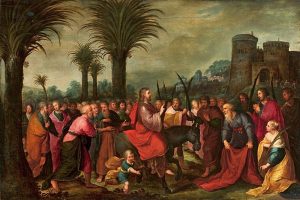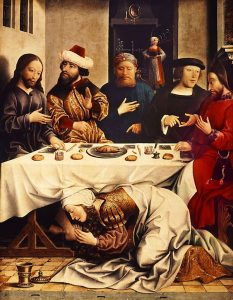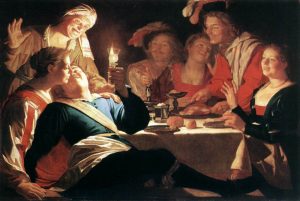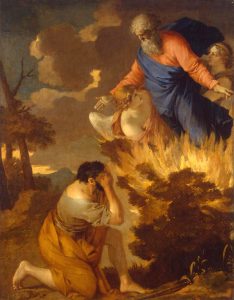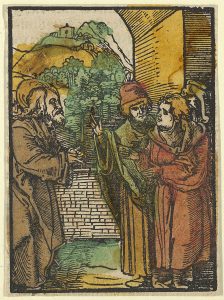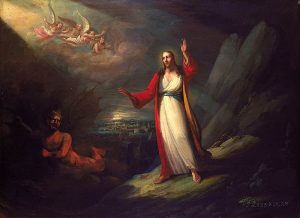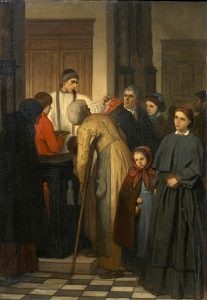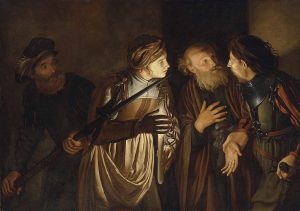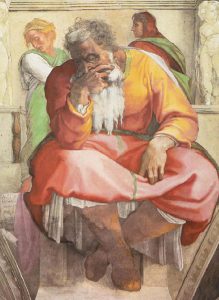Illuminations on the Lectionary readings for Holy Week 2025
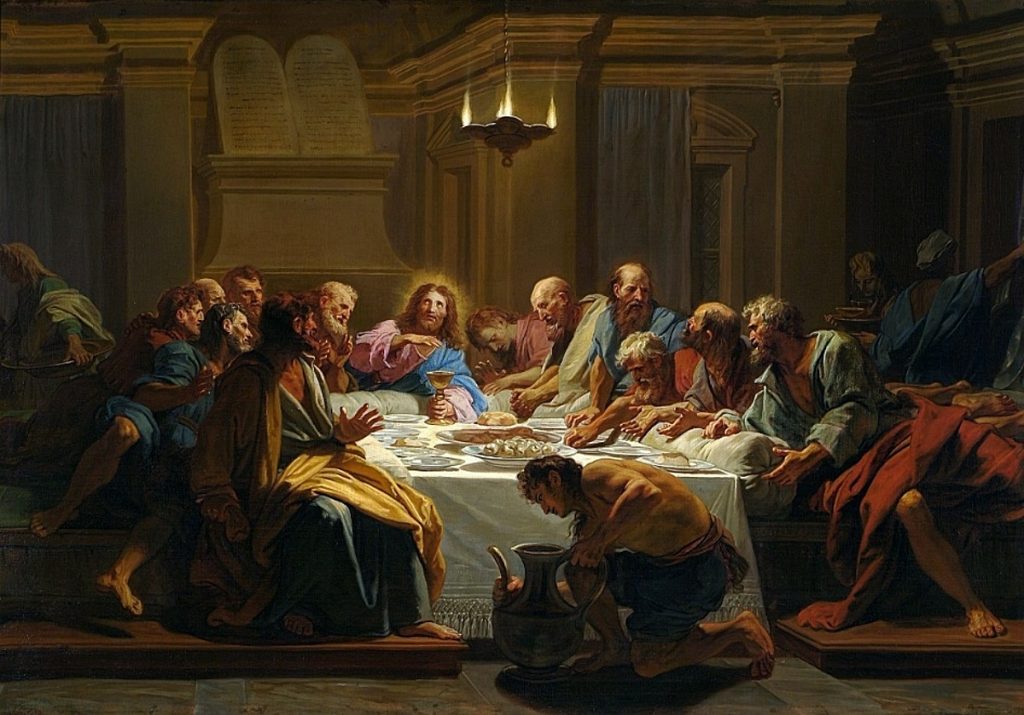
The Last Supper (1704), oil painting on canvas by Jean Jouvenet (1644-1717). National Museum in Warsaw, Poland. (Click image to enlarge.)
Illuminations on the Lectionary readings for April 17, 2025 (Maundy Thursday)
Exodus 12:1-4, (5-10), 11-14 [The first Passover]
Psalm 116:1, 10-17 [O Lord, I am your servant]
1 Corinthians 11:23-26 [This is my body that is for you]
John 13:1-17, 31b-35 [Jesus knew that his hour had come]
Illuminations on the Lectionary readings for April 18, 2025 (Good Friday)
Isaiah 52:13-53:12 [See, my servant shall prosper]
Psalm 22 [My God, my God, why have you forsaken me?]
Hebrews 10:16-25 [He who has promised is faithful]
or
Hebrews 4:14-16; 5:7-9 [He became the source of eternal salvation]
John 18:1-19:42 [“It is finished.”]
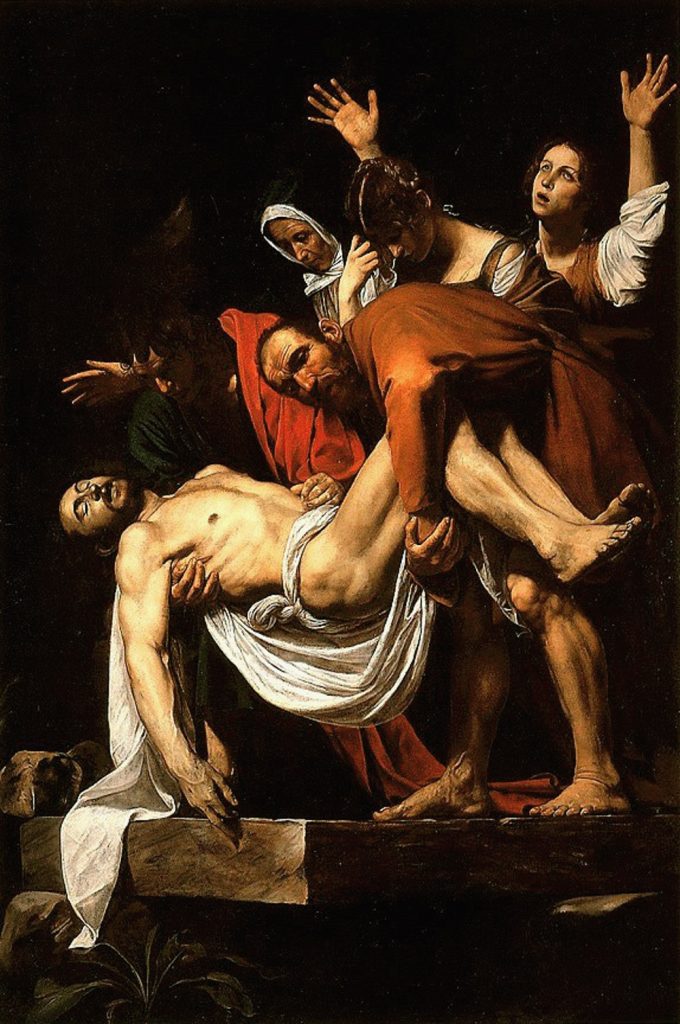
The Entombment of Christ (c.1602-1603), oil painting on canvas by Michelangelo Merisi da Caravaggio (1571-1610). Pinacoteca Vaticana, Vatican City, Rome. (Click image to enlarge.)
Illuminations on the Lectionary readings for April 19, 2025 (The Great Vigil of Easter)
At The Liturgy of the Word
At least two of the following Lessons are read, of which one is always the Lesson from Exodus. After each Lesson, the Psalm or Canticle listed, or some other suitable psalm, canticle, or hymn, may be sung. A period of silence may be kept; and the Collects provided on pages 288-91, or some other suitable Collect, may be said. It is recommended that the first Collect on page 290 be used after the Lesson from Baruch or Proverbs. (pp 893, BCP)
Genesis 1:1-2:4a [The Story of Creation]
Genesis 7:1-5, 11-18, 8:6-18, 9:8-13 [The Flood]
Genesis 22:1-18 [Abraham’s sacrifice of Isaac]
Exodus 14:10-31; 15:20-21 [Israel’s deliverance at the Red Sea]
Isaiah 55:1-11 [Salvation offered freely to all]
Baruch 3:9-15, 3:32-4:4 [Learn wisdom and live]
or
Proverbs 8:1-8, 19-21; 9:4b-6 [Does not wisdom call]
Ezekiel 36:24-28 [A new heart and a new spirit]
Ezekiel 37:1-14 [The valley of dry bones]
Zephaniah 3:14-20 [The gathering of God’s people]
At The Eucharist
Romans 6:3-11 [Death no longer has dominion over him.]
Psalm 114 [Tremble, O earth, at the presence of the Lord]
Luke 24:1-12 [He is not here, but has risen]
Illuminations on the Lectionary readings for April 20, 2025 (Easter Sunday – Principal Service)
See Easter Sunday – Principal Service Illuminations posted separately.
Illuminations on the Lectionary readings for April 20, 2025 (Easter Sunday – Evening Service)
Isaiah 25:6-9 [Then the Lord God will wipe away the tears from all faces]
Psalm 114 [Tremble, O earth, at the presence of the Lord]
1 Corinthians 5:6b-8 [A little yeast leavens the whole batch]
Luke 24:13-49 [He showed them his hands and his feet]

